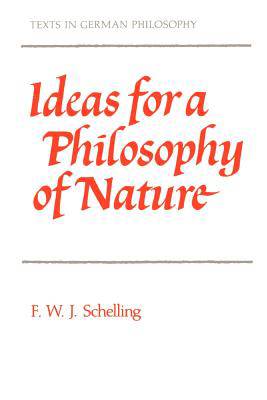
- Afhalen na 1 uur in een winkel met voorraad
- Gratis thuislevering in België vanaf € 30
- Ruim aanbod met 7 miljoen producten
- Afhalen na 1 uur in een winkel met voorraad
- Gratis thuislevering in België vanaf € 30
- Ruim aanbod met 7 miljoen producten
Zoeken
Ideas for a Philosophy of Nature
As Introduction to the Study of This Science 1797
Friedrich Wilhelm Joseph Schelling
€ 98,45
+ 196 punten
Omschrijving
This is an English translation of Schelling's Ideas for a Philosophy of Nature (first published in 1797 and revised in 1803), one of the most significant works in the German tradition of philosophy of nature and early nineteenth-century philosophy of science. It stands in opposition to the Newtonian picture of matter as constituted by inert, impenetrable particles, and argues instead for matter as an equilibrium of active forces that engage in dynamic polar opposition to one another. In the revisions of 1803 Schelling incorporated this dialectical view into a neo-Platonic conception of an original unity divided upon itself. The text is of more than simply historical interest: its daring and original vision of nature, philosophy, and empirical science will prove absorbing reading for all philosophers concerned with post-Kantian German idealism, for scholars of German Romanticism, and for historians of science.
Specificaties
Betrokkenen
- Auteur(s):
- Vertaler(s):
- Uitgeverij:
Inhoud
- Aantal bladzijden:
- 324
- Taal:
- Engels
- Reeks:
Eigenschappen
- Productcode (EAN):
- 9780521357333
- Verschijningsdatum:
- 30/09/1988
- Uitvoering:
- Paperback
- Formaat:
- Trade paperback (VS)
- Afmetingen:
- 154 mm x 234 mm
- Gewicht:
- 485 g

Alleen bij Standaard Boekhandel
+ 196 punten op je klantenkaart van Standaard Boekhandel
Beoordelingen
We publiceren alleen reviews die voldoen aan de voorwaarden voor reviews. Bekijk onze voorwaarden voor reviews.











